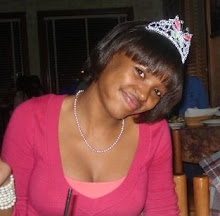I want to talk about, and kind of compare"Hap" and "Epitaph" because I think, to an extent, they are somewhat related in Thomas Hardy's views on religion, one of which is earlier in his life, and the other written 6 years before his death.
In "Hap," Hardy expresses concerns that a sadistic "Vengeful god" would tell him that his entire life, all of his existence, is nothing more than entertainment for said god- and even further that the god finds happiness and profit in Hardy's pain and losses (1073). I think people often del with this issue when considering what will really happen when they die, raising questions of whether or not there is an afterlife worth living for. For Hardy to think this and to proclaim that he would easily end his life for such an instance may lead one to think that Hardy may have had a somewhat agnostic view on life. It would also lead me to think that his view was also somewhat against structured religion, in order to question the morality of a god, Hardy could not have been an active Church-goer, or at the very least wasn't writing for them.
In "Epitaph," Hardy expresses that he's never cared for Life, but Life- who has cared for him, has forsaken him. Life now says, " thou didst ask no ill-advised reward,/ Nor sought in me much more than thou couldst find" (1079). This says that Hardy sought more out of life than it had to offer, and possibly got bored with it, explaining why he never really cared for it. But also, Hardy did not ask for anything more out of Life: an "ill-advised reward." He expected to gain nothing from Life, quite possibly even the promise of something after life. It is interesting that his description of their relationship is like a romantic one, and although Hardy has been faithful- never attempting to kill himself or anything- Life is no longer willing to stay with him.
Could this be Hardy foreshadowing his own death, 6 years later? Is it maybe a thought that death was coming soon for him? Or maybe it was him feeling that the rewards of Life were no longer available to him- perhaps the ripe old age of somewhere around 82 made him feel this way? I cannot answer any of these questions but I do think it continues his somewhat agnostic or even atheist view that there is no afterlife, nothing to search for in life because nothing will come after it.
Monday, June 29, 2009
Subscribe to:
Post Comments (Atom)

Jalisa,
ReplyDeleteOK post, but once again you tend to split your focus over two poems, and reply primarily on paraphrase and generalizations rather than specific textual examples. You make several insightful observations in this post, but lack adequate support.
Jalisa,
ReplyDeleteI did not interpret "Hap" as you did. I think Hardy wrote this poem out of frustration. He felt that if there was a God no one would suffer or have to remove obstacles from their path. What person that was all powerful could let so much pain be endure by his children. Since there was so much sadness surrounding him, he concluded there was no God. I think most of these feeling errupted from the lack of fullfillness of a family.
I wrote about the Epitaph as well and had a really similar analysis. One thing you did that I did is the final conclusion at the end of your blog. Thats just a really nice wrap up at the end.
ReplyDeletePossibly you could take into account the fact that this is written upon his epitaph leading the reader to consider the possibility that writer is writing it from beyond the grave. Nice post overall.